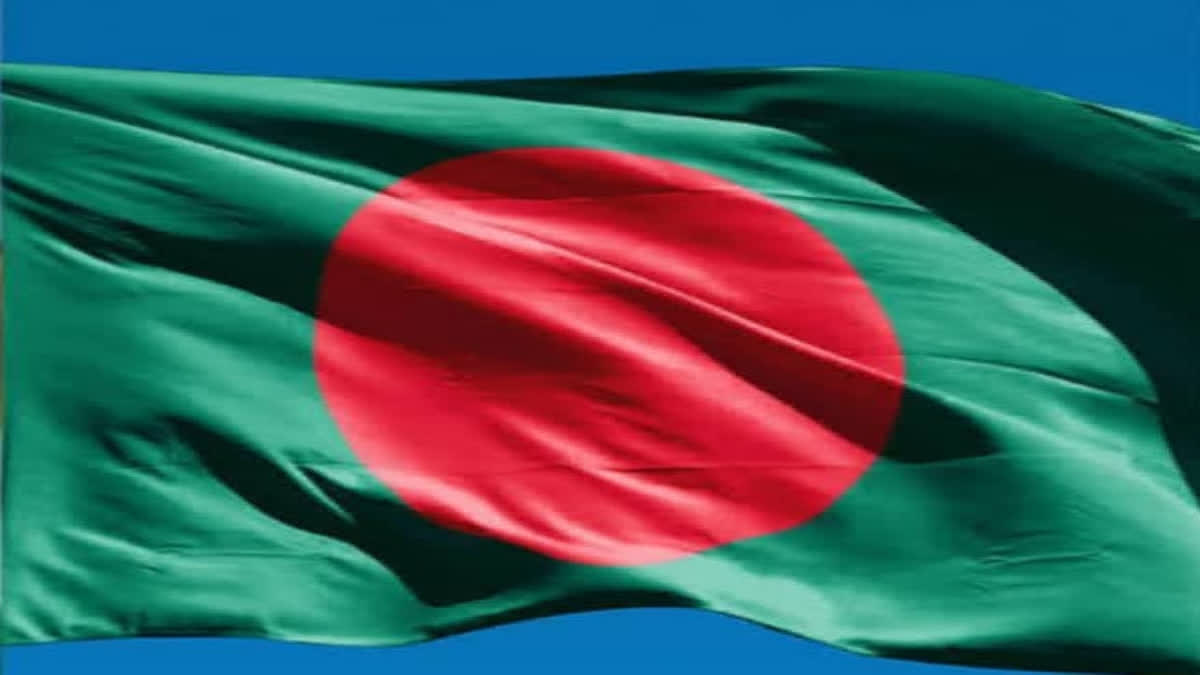Dhaka:Two days after a member of Bangladesh's interim government said India was “nothing more” than an ally in the country's liberation, the Foreign Ministry on Wednesday made a similar point, citing a book by India's former foreign secretary J N Dixit.
“We celebrate our glorious Victory in 1971; we celebrate the Truth,” the Foreign Ministry said in a post on Facebook. India commemorates December 16 as Vijay Diwas when over 90,000 Pakistani soldiers surrendered before the Indian Army, leading to the creation of Bangladesh.
Bangladesh marks it as Victory Day or 'Bijoy Dibosh.' On Monday, interim government’s Law Adviser Asif Nazrul had criticised Prime Minister Narendra Modi’s post on X commemorating Victory Day saying, “India was merely an ally in this victory, nothing more.”
The state-run news agency, Bangladesh Sangbad Sangtha (BSS), on Wednesday, quoted the ministry’s post, titled 'Facts in History', that reiterated that “Bangladesh emerged as a sovereign, independent country on December 16, 1971, following a prolonged struggle and a nine-month-long brutal war."
BSS said the Facebook post by the Ministry quoted Dixit’s book 'Liberation and Beyond: Indo-Bangladesh Relations', which said “a major political mistake” was made at the surrender ceremony.
Dixit had suggested that General M A G Osmani, Commander from the Bangladesh side on the Joint Command, should have been at the ceremony and made a signatory.
The former India National Security Adviser claimed that Osmani's helicopter did take off but did not reach Dhaka in time for the surrender schedule and added that his presence could have helped in avoiding many of the political misunderstandings between India and Bangladesh relations in the initial days.
The Foreign Ministry's post concluded, “We celebrate our glorious Victory in 1971; we celebrate the Truth.” On Monday, Nazrul’s comment was reposted by the office of Chief Adviser Muhammad Yunus.
Attaching a screenshot of Modi’s post that paid tribute to Indian soldiers for their role in the historic victory in 1971, Nazrul wrote on Facebook in Bengali on Monday, “I strongly protest. December 16, 1971, marks Bangladesh's Victory Day. India was merely an ally in this victory, nothing more.”
Yunus’ Press Secretary Shafiqul Alam shared Nazrul’s post, The Daily Star newspaper reported on Tuesday. Anti-Discrimination Student Movement Convener Hasnat Abdullah also criticised Modi’s post.
Abdullah wrote on Facebook that this was Bangladesh's Liberation War and it was for the country’s independence against Pakistan. He said Modi has claimed it was solely India's war and their achievement, disregarding Bangladesh's existence in their narrative.
"When India claims this independence as their achievement, I see this as a threat to our independence, sovereignty and oneness. It's necessary for us to fight against this threat by India. We need to carry on this fight," he wrote.
Modi, in a post on X, had said, “Today, on Vijay Diwas, we honour the courage and sacrifices of the brave soldiers who contributed to India’s historic victory in 1971. Their selfless dedication and unwavering resolve safeguarded our nation and brought glory to us.
“This day is a tribute to their extraordinary valour and their unshakable spirit. Their sacrifices will forever inspire generations and remain deeply embedded in our nation’s history.”
Chief Adviser Yunus led Bangladesh Monday in marking the 54th Victory Day, his speech making no mention of founding leader Mujibur Rahman while calling deposed prime minister Sheikh Hasina’s administration the “world’s worst autocratic government”.
Rahman’s daughter Hasina was ousted from power on August 5 after massive student-led protests against her Awami League government. There was also no mention of India’s role in Yunus’ address to the Nation on Bijoy Dibosh.
India had also backed Bengali guerrillas in the fight against the Pakistan Army after West Pakistan’s leadership refused to acknowledge the 1970 election victory of Mujibur Rahman’s Awami League.
